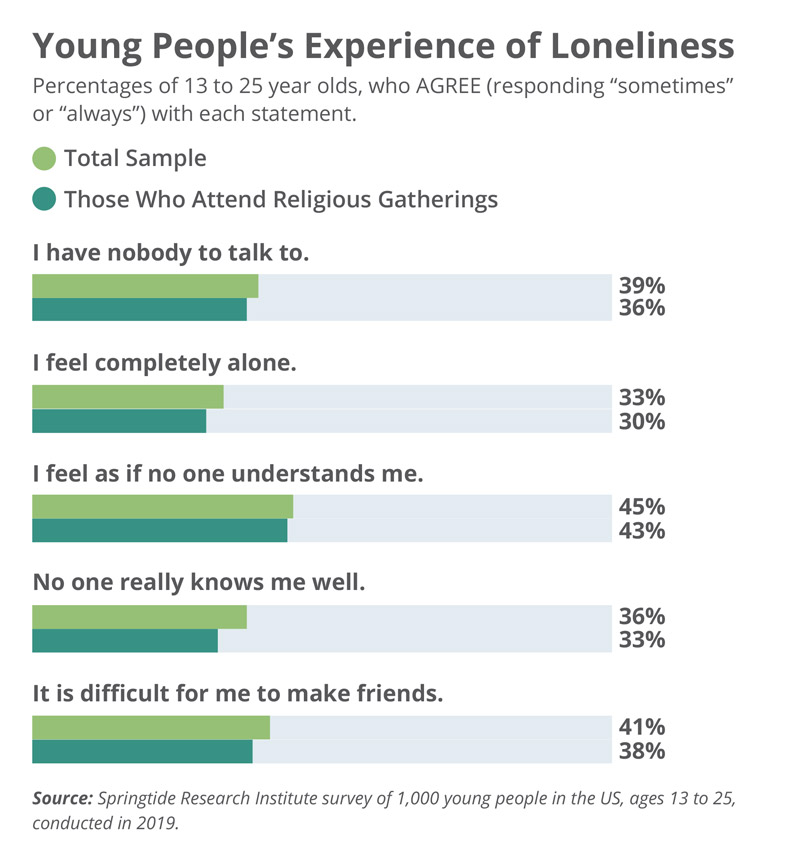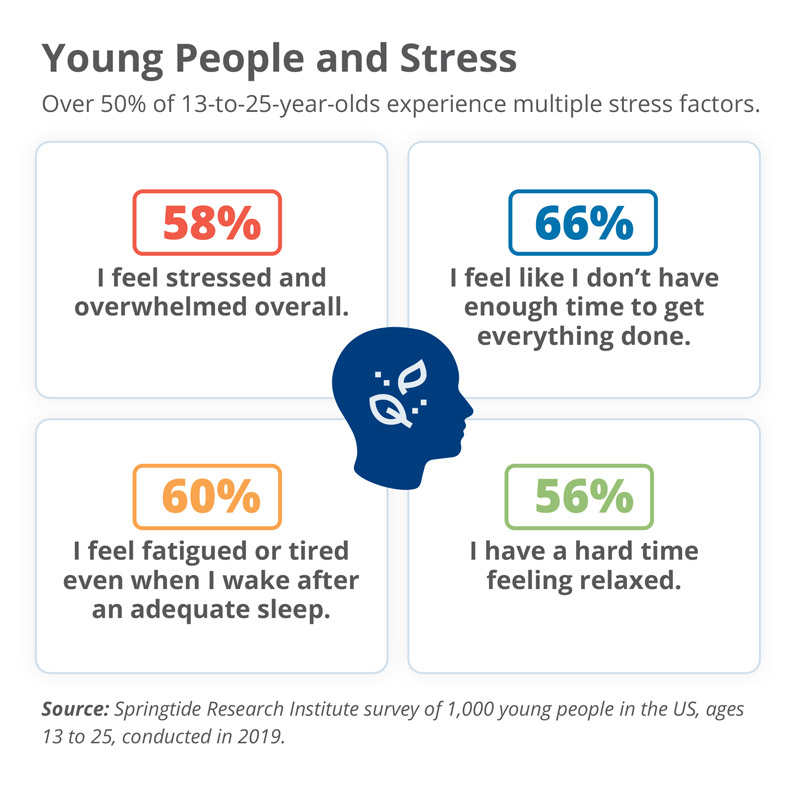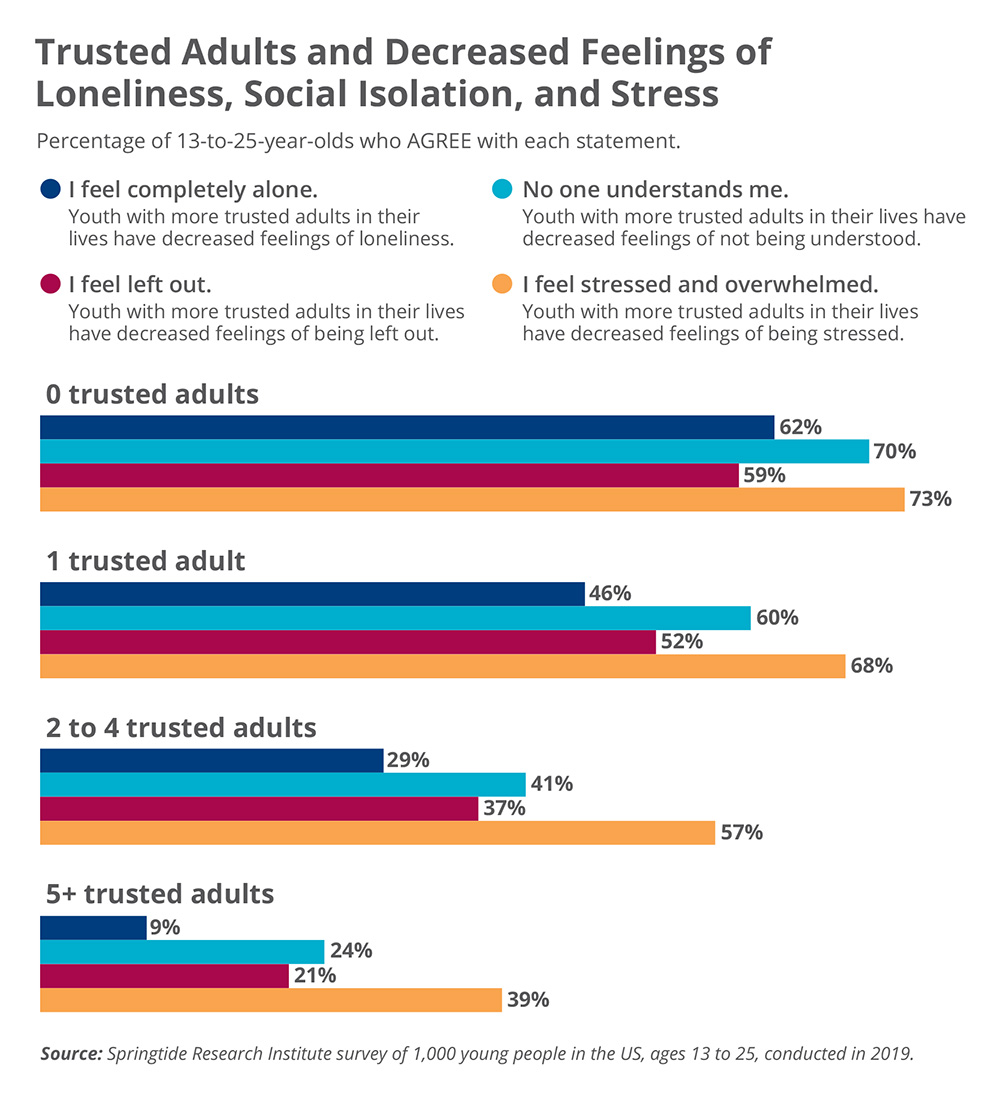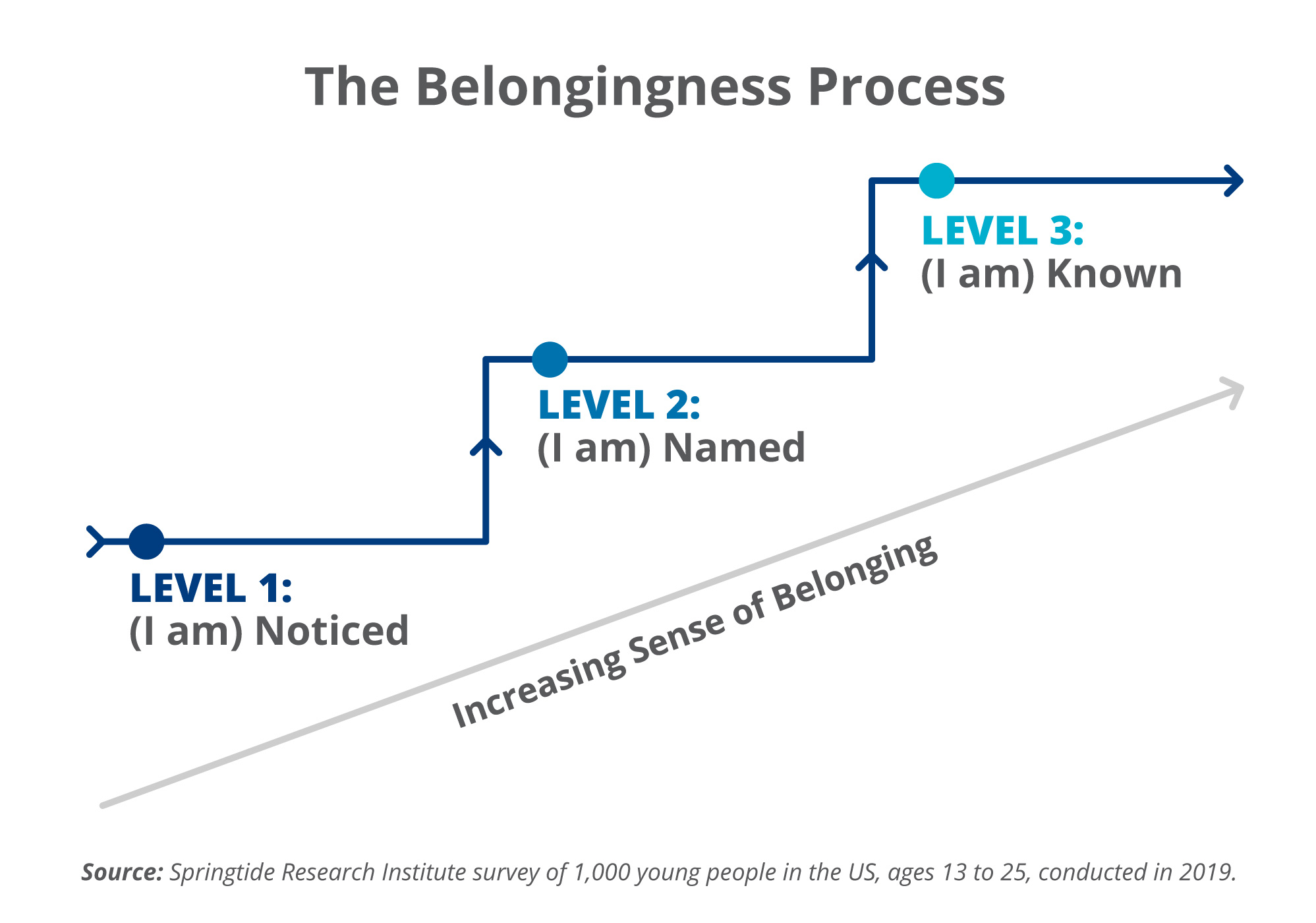How Teens and Young Adults Experience Belonging
Young people report near-epidemic levels of loneliness and stress. Yet, young people know the importance of creating a sense of belonging and how adults can aid in the process.
In 2019, Springtide Research Institute surveyed 1,000 young people and interviewed 35 more to understand young people’s experiences with loneliness, isolation, and stress and examine how young people find a sense of belonging. Belonging: Reconnecting America’s Loneliest Generation research shows that while young people are experiencing record levels of stress and anxiety, meaningful relationships, particularly with adults, help to alleviate it. These meaningful relationships with adults often develop in three stages: feeling noticed, named, and known.
Key Findings
-
Many young people report feeling lonely, isolated, and stressed.
One in three young people feel completely alone much of the time, and almost half of young people say it feels like no one understands them. For them, stress doesn’t come from one source and often permeates multiple areas of life.


-
Relationships, rather than organizational participation, deliver belonging.
Our data show that participation in secular and religious groups isn’t associated with decreased feelings of loneliness, social isolation, or stress. Yet, young people who have relationships with trusted adults report fewer instances of negative mental health outcomes. Young people say that when they encounter a group in which they find belonging, it’s because of the people and the relationships they experience.

-
Belonging deepens through a distinct process.
In interviews with young people, three distinct experiences emerge from their stories of joining a group to ultimately experiencing true belonging within that group: feeling noticed, feeling named, and feeling known. Whether it happens quickly or over time, these interactions build on one another to deepen the overall experience of belonging.

You can purchase and access the full report, Belonging: Reconnecting America’s Loneliest Generation here.






